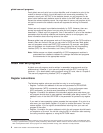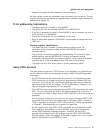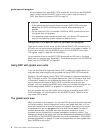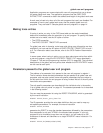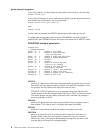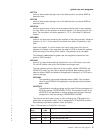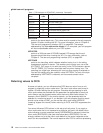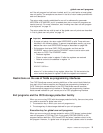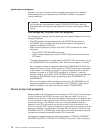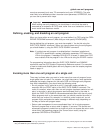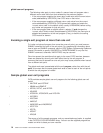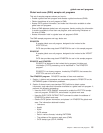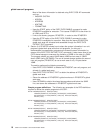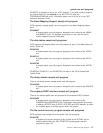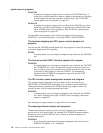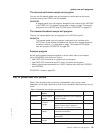
program (via a link or transfer-control command), the program thus invoked is
executed according to the execution key (EXECKEY) defined in its program
resource definition.
Important
You are strongly recommended to specify EXECKEY(CICS) when defining
both global user exit programs and programs to which an exit program passes
control.
Data storage key for global user exit programs
The storage key of storage used by global user exit programs depends on how the
storage is obtained:
v The CICS-supplied storage addressed by the UEPXSTOR parameter of
DFHUEPAR, and any global work area specified when an exit program is
enabled, are always in CICS key.
v Global user exit programs that can issue EXEC CICS commands can obtain
storage by:
– Explicit EXEC CICS GETMAIN commands
– Implicit storage requests as a result of EXEC CICS commands that use the
SET option.
The default storage key for storage obtained by EXEC CICS commands is set by
the TASKDATAKEY of the transaction under which the exit program is invoked.
As an example, consider a transaction defined with TASKDATAKEY(USER) that
issues a file control request, which causes an XFCREQ global user exit program
to be invoked. In this case, any implicit or explicit storage acquired by the exit
program by means of an EXEC CICS command is, by default, in user-key
storage. However, on an EXEC CICS GETMAIN command, the exit program can
override the TASKDATAKEY option by specifying either CICSDATAKEY or
USERDATAKEY.
v When an exit program obtains storage by means of an XPI GETMAIN call, the
storage key depends on the value specified on the STORAGE_CLASS option,
which is mandatory, and which overrides the value of TASKDATAKEY.
Errors in user exit programs
Because global user exit programs are an extension to CICS code, they are subject
to the environment that CICS is running in when they are called. If an error is
detected at an exit point, CICS issues messages indicating which exit program was
in error, the place in the program at which the error occurred, and the name of the
associated exit point. The detection of an error is not guaranteed, because it
depends on the CICS environment at the time of error, and on the nature of the
error. For example, CICS might not recognize a looping user exit program, since the
detection mechanism may have been turned off. Also, an abend in one of the exits
XPCABND, XPCTA, or XSRAB may cause CICS to terminate abnormally, because
an abend during abend processing causes CICS to terminate.
Exit programs invoked at some exit points (for example, XTSEREQ, XTSEREQC,
XICEREQ, XICEREQC, XTDEREQ, or XTDEREQC) can enter a loop by issuing a
global user exit programs
12
CICS TS for OS/390: CICS Customization Guide



